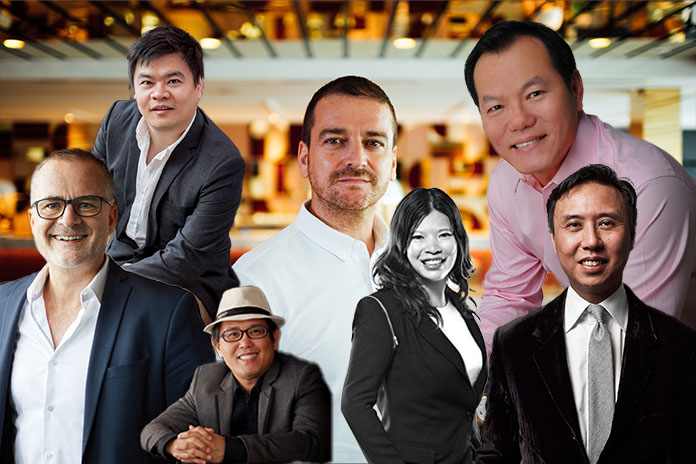
THE heavy clouds seem to be finally parting as the measures to contain COVID-19 in Singapore are easing up.
Heaving a collective sigh of relief will be the food and beverage sector, where restaurants that are still in operation have endured difficult times during the pandemic. Many others have folded as the circuit breaker and restricted seating and tighter manpower measures made for challenging operations.
From 26 April, restaurants, coffee shops and hawker centres can take in vaccinated customers as normal. They will still have to mask up when not eating, and an honour system will apply regarding their vaccination status, with random checks conducted to ensure these measures are met.
But what has been the impact of COVID-19 and its measures on F&B operators?
STORM-ASIA talks to a range of restaurant operators to find out how they’ve been coping, what they did to stay in the game and what they see their sector serving up down the line.
It hasn’t been all gloom and doom, as some of them have incorporated new sales channels like home delivery and take-away services to keep the wheels of their operations going. Others have opened up new dining concepts, taking advantage of better lease terms and introducing fresh ideas to feed a hungry audience.
Time For New Concepts
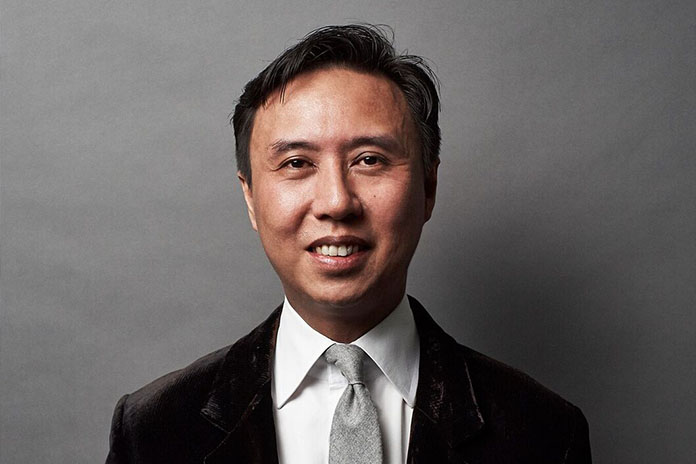
“FROM June 2020 to March 2021, it was a great ride,” says Andrew Ing, Chief Operating Officer of OUE Restaurants. This was the period after the Circuit Breaker was lifted until a rise in cases resulted in the heightened alert and tightening measures.
“The industry was really strong during that window because people couldn’t travel and had to go out and spend money, mainly at restaurants.”
A lot of that money was spent at premium and fine dining establishments.
But when the Delta variant swept in, it was back to a state of heightened alert with 2 customers per table dining in restaurants and social distancing considerations to bear in mind.
Following that, in November 2021 it was eased and more people could dine in.
A perfect storm of challenging situations came together at this time.
“By then, many of our people had moved on, some to become Grab drivers and riders. Landlords were starting to raise rents. The supply chain was affected and energy prices and other costs were rising. And the war in Ukraine broke out after that,” Andrew rattles off a list of challenges.
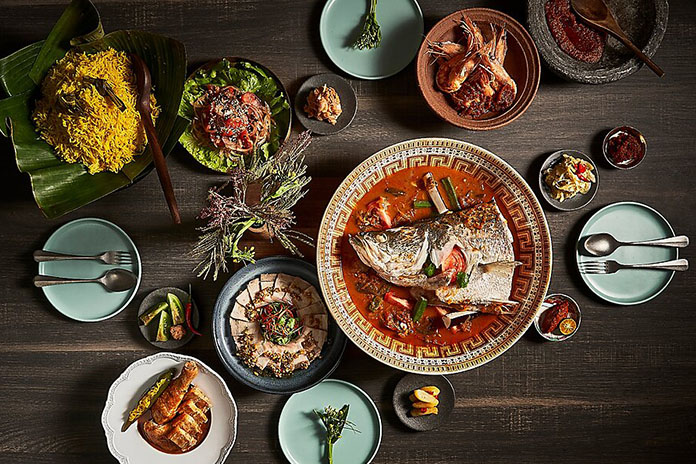
Despite the uncertain times, OUE Restaurants opened up 3 new concepts — FuFu Pot in Plaza Singapura, Hanare by Takayama in Takashimaya Shopping Centre and Chef Damian D’Silva’s all-day restaurant serving Singapore fare he grew up with, Rempapa, at Paya Lebar Quarter.
All of them have distinct identities, which Andrew feels is important. “Independent restaurants will struggle unless they have good concepts and a talented chef. New restaurants have to ask who their competitors are and what makes them different.
“There are so many Japanese restaurants opening now, what makes you stand out? You have to make your restaurant unforgettable.”
That said, Andrew observes that there are more restaurants opening now than before the pandemic. Many will face another hurdle: “It’s going to be hard to find manpower and skilled labour, especially with tougher criteria imposed by the government to limit the hiring of foreign labour.”
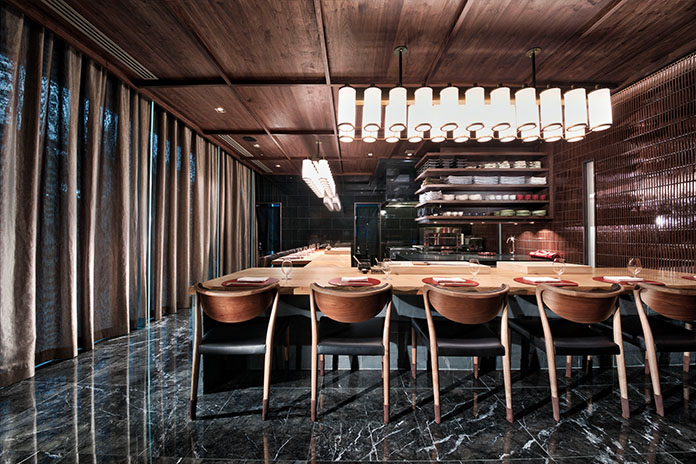
Depending on the local labour force to make up the numbers may not necessarily work, as many have learnt. “If the money is good, Singaporeans will take up jobs. Another deciding factor is how you are treated by employers. This industry will only survive if we take care of our people. They have to be well-rested, paid on time, paid well and with good medical benefits. You have to balance mental well-being and health.
“Technology can be helpful, but it doesn’t save you on manpower cost. It helps the guest experience, and it may increase the average check. But, for our restaurants, we need face-to-face interaction.”
Meanwhile, the Mandarin Orchard Hotel which used to be operated by OUE was renovated and reopened as a Hilton earlier this year. But the signature outlets — Chatterbox, famous for its chicken rice since 1971, and Michelin-starred Shisen Hanten — continue to be operated by OUE Restaurants.
The Delifrance brand also continues to do well, especially after outlets are renovated and upgraded.
“Having a brand name is important,” Andrew maintains. It helps to keep the brand visible and may also enjoy some measure of handing down through the generations.
With employees encouraged to return to the office, business has picked up in the central business district, which is a good sign. Events are also coming back. And the big Formula 1 race is on, and events for that are being planned now.
There are long queues at shopping centres. People are coming back and the industry is stirring again.
Anticipate And Stay Flexible
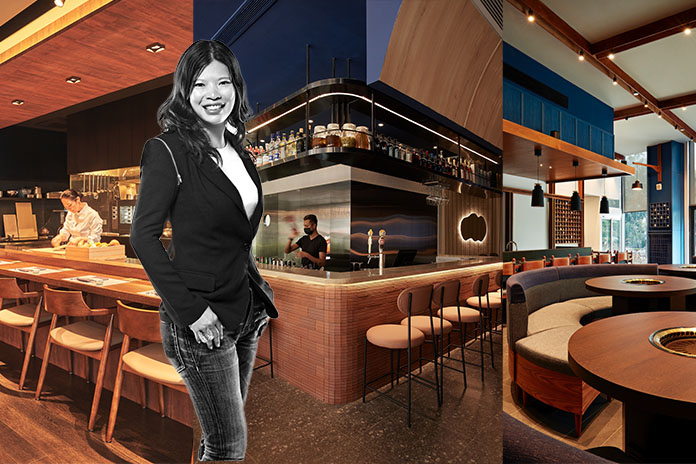
ONE key lesson that the pandemic has taught Karen Cheng is the importance of her F&B businesses remaining flexible. The co-founder of Japanese dining establishments Sushi Kimura, The Gyu Bar, Ichigo Ichie and Binary says operating costs have risen and shortages of raw ingredients from Japan and Europe have impacted menu offerings.
“The teams have had to adapt by using other ingredients,” Karen says. “Meanwhile, manpower issues continue to worsen. There aren’t enough people to fill the F&B roles.”
“Nevertheless, keeping to the core of the business in terms of maintaining the quality of the product and consistency in service delivery is important. As well the ability to anticipate and keep up with the uncertainties,” Karen explains.
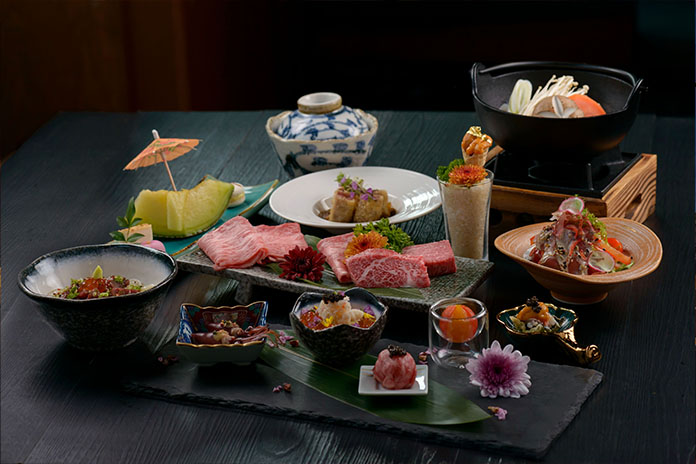
All these require a well-trained team to execute the plans. Therefore, staff training and development, and team retention proved vital in getting her F&B concepts through the pandemic.
The two years saw various shifts in customer behaviour. “I feel that the dining demographics and behaviour have changed. We observed that the younger people are dining out more than the older diners. They are more adventurous with their dining choices – you see them dining across mass market concepts to fine dining establishments.”
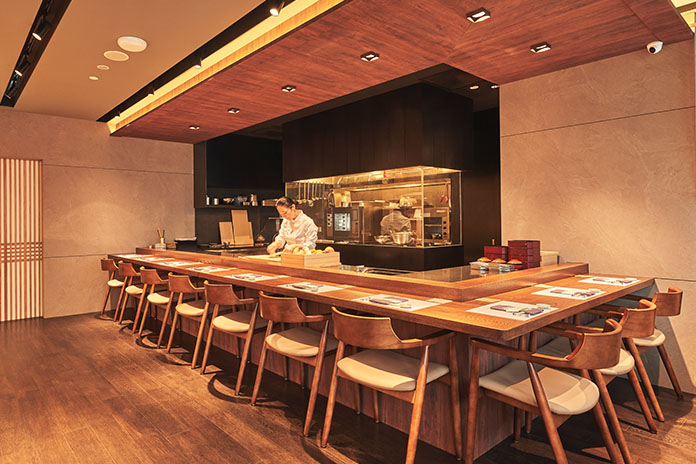
The progression towards the endemic phase has brought about further shifts in dining habits.
“New concepts still draw interest, but not at the same level as during the past two years,” Karen observes. The borders have opened up and many people who miss travelling are flying again,” Karen offers as explanation.
Despite the challenging times Karen has seen positive changes taking place in the F&B scene with new hawker stalls being helmed by chefs from well-known hotels and restaurants, and the private dining scene bubbling with variety and quality.
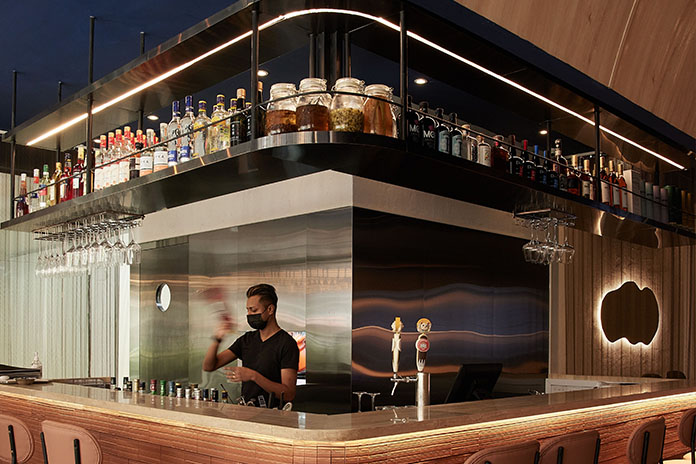
On her part, she has continued to open new dining concepts, including gastro-bar Binary, at Palais Renaissance, and Shin Yasuke at Loft@Nathan, a casual offshoot of Shin Kimura. And in both instances, the response has been positive.
Growth Is A Necessity
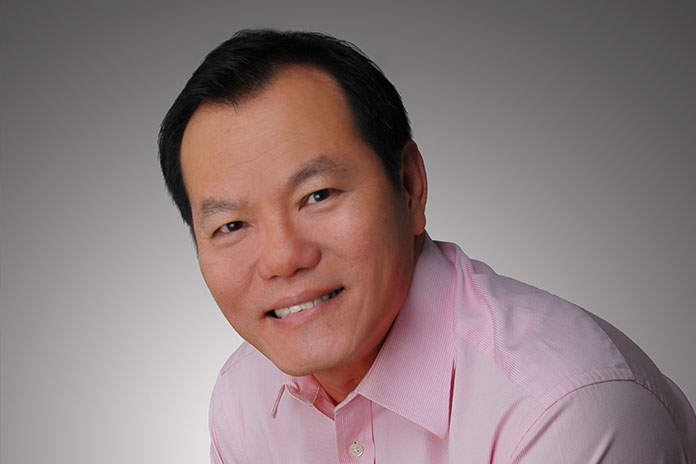
“IN business, be it good or bad times, growth is not an option but a necessity,” insists Anthony Wong, CEO of Creative Eateries.
The business that Anthony founded in 1992 has grown into an enterprise spanning a dozen restaurant concepts offering a variety of cuisines.
While growth is important, he cautions that “the forward push will be muted with careful selection of the battle ground”.
“Consumers are willing to try new things. As long as the product is new and of good quality, they will be attracted to it, even at a higher cost,” he reckons.
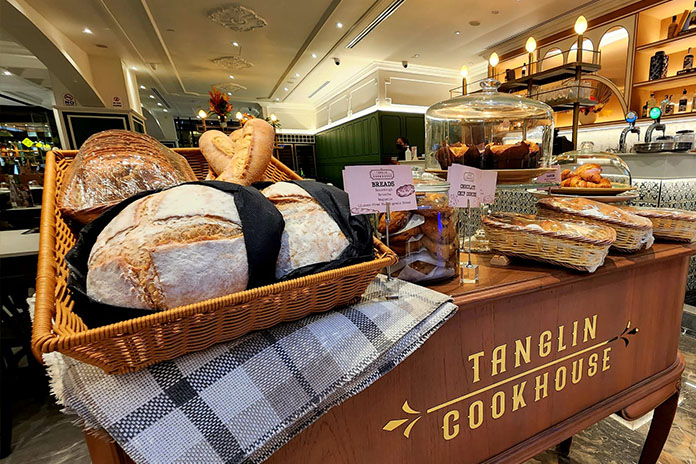
The war in Ukraine has resulted in increased costs, and Anthony says that prices have to rise to allow F&B businesses to remain viable. “But it can only go up with product quality rising in tandem.
“Hence, the segment that will be the winner in the near future will be quality cafés and fine dining restaurants.”
In keeping with that philosophy, Creative Eateries opened several outlets after the Circuit Breaker — Barossa @ Vivocity, Tajimaya at Great World, Dopo Teatro at Esplanade. This year, Typhoon Café at Kallang Wave Mall and Tanglin Cookhouse at Tanglin Mall opened.
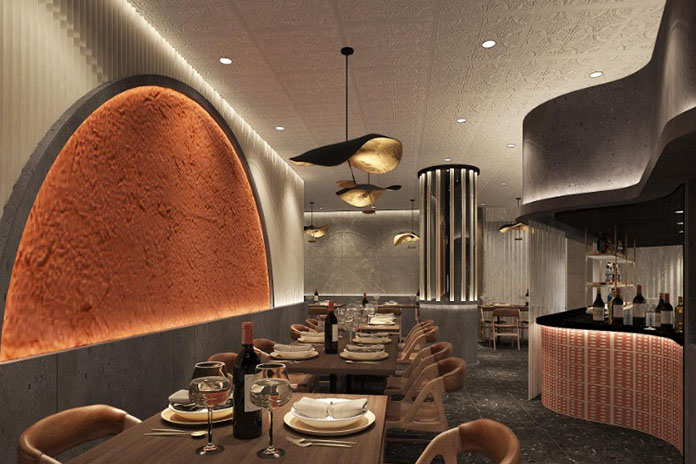
Anthony appreciates that the government assistance has helped to keep most F&B operators in business.
“The first round of government assistance was disappointing. However, everyone quickly realised that this is a very different crisis and more needed to be done. The subsequent rounds of assistance to mitigate the various COVID-19 measures have been instrumental in keeping most F&B operations afloat, and that was important.
“Creative Eateries’ strategy has always been one of diversification — from catering to restaurant concepts appealing to different target markets — and this helped us navigate the crisis and come out relatively unscathed.”
But Anthony observes certain shifts in attitudes towards dining as a result of the pandemic.
While many people expect home delivery to become more prevalent even after restrictions are eased, he believes this online delivery platform will taper down. “People are social in nature and they would want to return to the restaurants to dine and socialise. Online delivery has its limitations in Singapore as increasing costs and reduced availability of manpower resources will tighten the growth of this consumer habit.
“Another marked changed from the pandemic is that consumers have become more discerning. They are not willing to spend on marginal quality food. They are willing to spend more as long as the food quality is good.”
The Rising Cost Of Doing Business
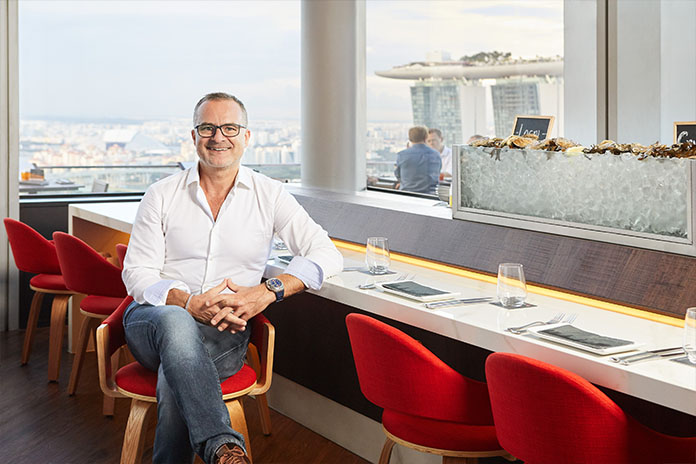
IT is nearly impossible to set new strategic directions as there are too many external factors, all of which are basically moving parts, observes Dr Martin Bém, founding Managing Director of LeVeL33, the rooftop microbrewery and restaurant at Marina Bay Financial Centre.
It is part of the Ponte Group, a hospitality group offering a variety of F&B concepts in Asia, that Martin started in 2003 when he brought in German brewery Paulaner.
While the move towards treating COVID-19 as an endemic is opening up society, Martin still sees many obstacles in the way.
“Operating costs have gone up on all fronts: Employment expenses as a result of government policies; supply chain issues internationally affect all products; and the tragic war situation in Ukraine drove cooking oil prices up by nearly 30% to date.
“All of the above make it even more difficult to make up at least some of the ground lost during the pandemic.
“Many venues still have loans to service, rental abutments to top up and deferred salaries to pay.”
One positive from the pandemic restrictions is that more locals discovered LeVeL33 due to travel restrictions.
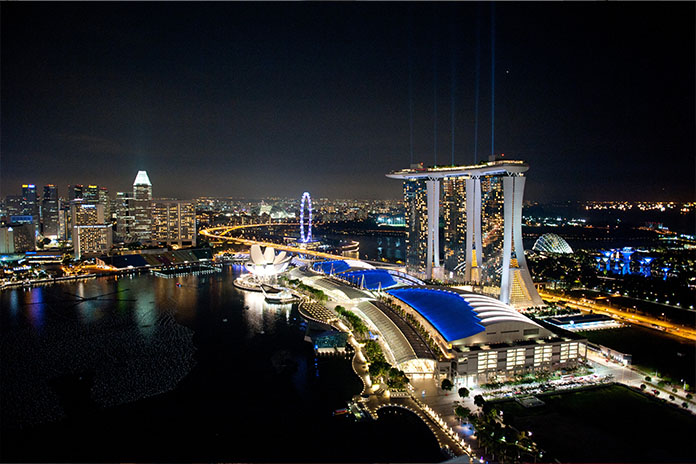
“The demand of our guests has been overwhelming; it shows clearly that the human need for socialising over food is much more than just pure nutrition, but a strong need to connect with others and share experiences.”
But while this may augur well for the business, there are government policies that are posing challenges.
“If government agencies continue with the current push for more standardised food offers, towards centrally produced food items and less available staff for any culinary craft, the overall restaurant offerings will decrease considerably in terms of variety and quality of food,” Martin notes.
“The going will be rougher for smaller operators. The policies seem to be guiding the whole industry towards more standardised, more processed food, preferably coming out of a centralised production facility, which is only viable for bigger operators with multiple outlets.
“Personalised, individual offerings and services will be increasingly difficult to provide. Although this is a major international trend, Singapore seems to be going in the other direction.”
The other challenge is the imposed restrictions on hiring foreign workers.
“Contrary to popular belief, it is not a matter of salary or packages offered to local workers. Singaporeans, unfortunately, are simply not keen on pursuing a career in F&B, regardless of remuneration and career prospects.”
Facing Challenging Times
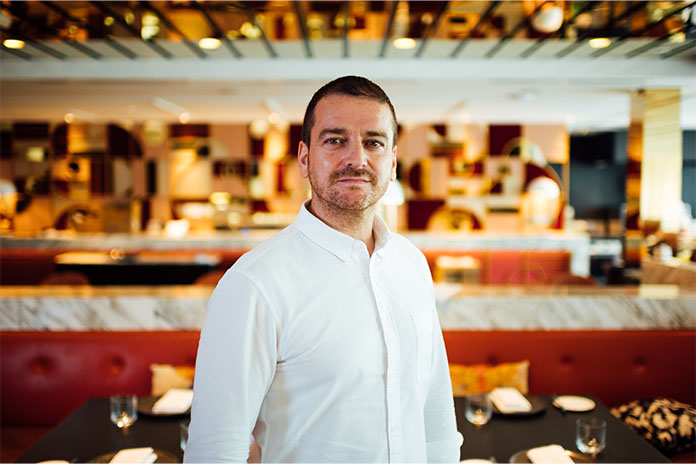
“THE past two years have been disastrous for our business, especially those outlets that cater for corporate dining and events,” laments Beppe de Vito, Chef-owner of the ilLido Group, known for its high-quality Italian dining concepts.
Things have started to look up since the recent easing of restrictions allowing for longer hours for alcohol consumption and larger group sizes for dining.
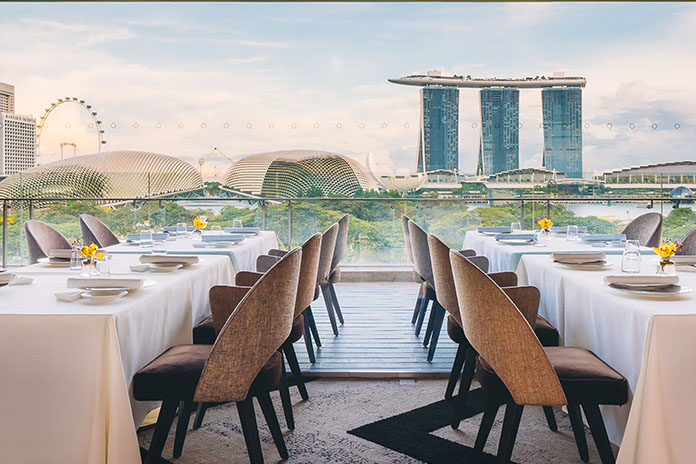
“The current economic situation is hindering corporate business events recovery, though, resulting in lower average checks.”
Beppe has observed an evolution of the local F&B scene even before COVID-19 hit. He expects this pace to pick up with more young local restaurateurs joining the scene.
“Existing operators will always want to continue to grow and expand, and due to its low entry barriers there will always be more newcomers no matter what.
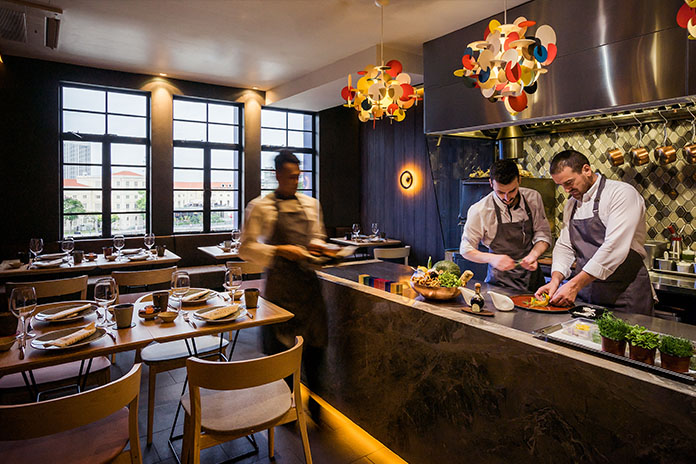
“Although we are now in a better position to understand what’s ahead of us, the tremendous difficulties we are facing to fill positions, and the draconic measures the government is insisting on when it comes to employing foreigners make it very hard for us to plan for expansion.”
Keeping A Steady Hand

SINGAPORE’S handling of the pandemic may see more foreign F&B brands heading here, says Loh Lik Peng, founder of Unlisted Collection, an international group of over 20 restaurants and 5 hotels.
“I see a lot more overseas brands and concepts wanting to get into Singapore. I think there is a perception that the pandemic was well managed here and that Singapore is roaring back strongly.
“Some of these brands might have thought to launch in Hong Kong first, but I think many of them now prefer to use Singapore as their entry point to Asia.”
Casting his eyes to the horizon, Lik Peng anticipates “a choppy ride” ahead.
“It’s been an unprecedented time of turmoil. The pandemic was obviously shattering because it utterly destroyed dine in, which is the very core of what restaurants are all about.”
Like many other F&B businesses, Unlisted Collection switched to take out to keep the operation going.
Government subsidies in rent and labour proved a “Godsend because those are our businesses’ highest fixed costs”.
Even though things are easing up, there are still challenges ahead.
“We are now faced with very high energy and input costs from food and labour. This will inevitably mean prices will need to rise and we can only hope the dining public will accept this.
“There is a limited amount we can do to cushion this so I think we are in for a period of trying to cap a rising tide of costs without alienating our patrons, who themselves are likely to be quite constrained by rising costs as well.”
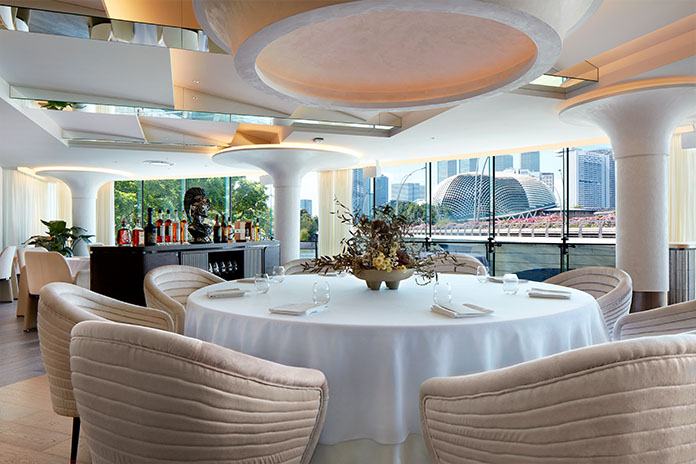
Despite the challenges posed by a variety of factors, Lik Peng sees no shortage of newcomers to the industry.
“There are perennial problems in the hospitality industry and, while more pronounced now, they have never been a deterrent to new entrants. Everyone always thinks they have something that will be so good that they will succeed where the evidence points otherwise.
“There is something of a gambler’s psyche at play here but its always amazing to me the number of new entrants who try to get into this game with so little idea of what it really takes to succeed.”
That enthusiasm to jump into this industry has seen it “bounce back to normal faster than anyone predicted”.
During the pandemic, Lik Peng noticed a big increase in the consumption of comfort food like cheesecakes, burgers, sourdoughs and other sweet and unhealthy items.
“I think this is switching back to normality now, and from what I can observe people are back to dine in and back to their normal habits.
“My observation is that people are all about dining out, now that it is allowed again. Our deliveries and take outs have fallen off a cliff. It seems that take out and deliveries have not in any permanent way taken away significant market share from restaurants proper. That tells me that restaurants play an important social function beyond the food and feeding so, for now, I would say the impact is limited.”
Picking Up After Difficult Months
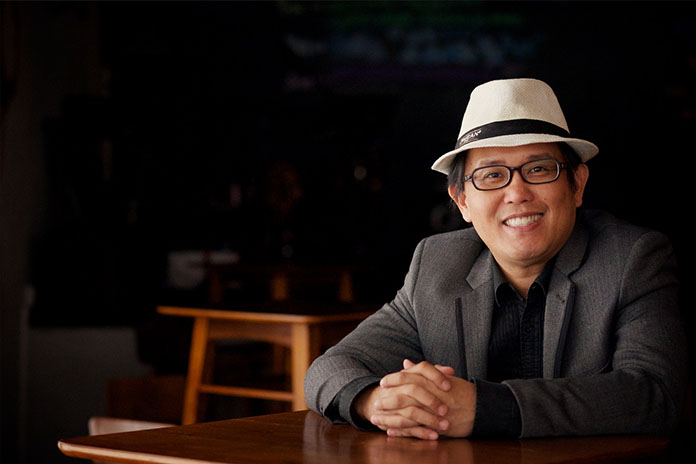
F&B was severely hit during the pandemic, but this did not discourage young entrepreneurs from taking the plunge into the industry, observes Danny Loong, CEO of Timbre Group.
“There were more new entrants to the industry, despite many known brands closing down. The reasons are the low entry barrier, especially with more properties available in prime locations, resulting in lower rentals and better contract terms from landlords.”
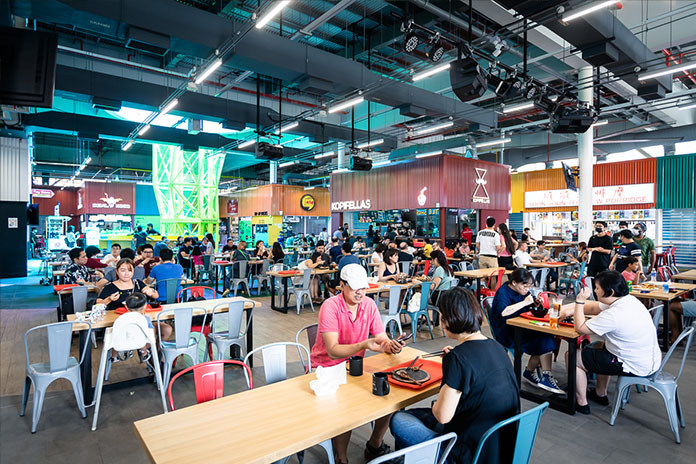
The group opened its Timbre+ Eastside food park at The Singapore Expo during the pandemic.
“The first few months were challenging with ever-changing regulations. But with restrictions easing, we’ve seen business pick up and we are enjoying 90% occupancy on weekends.”
The eating habits of Singaporeans have also changed, Danny adds.
“There are more delivery orders as people eat at home. More people are also cooking at home and adopting healthier eating habits. But there are also instances of high-calorie binge eating, maybe when binge watching movies and TV shows.”
Watch our previous wedwebchats: https://storm-asia.com/category/wed-web-chat/
If you have a topic that is of interest, or have someone who would make a good panellist with a thought-provoking perspective on a subject, please email editor@storm-asia.com with your details and a short summary.



















